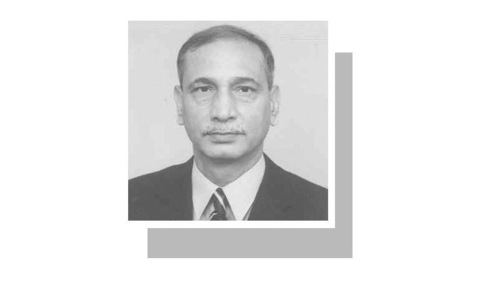WASHINGTON, Sept 20 Long before the Sept 11, 2001, terrorist attacks, the Taliban had offered to hand over Osama bin Laden to the United States if Washington gave them a face-saving formula for the transfer, reveal US government documents posted recently on the website of the George Washington University's National Security Archive.
The documents, obtained under the Freedom of Information Act, showed that the Taliban made repeated offers to hand over the Al Qaeda chief to the Americans and Pakistan continued to try to convince the Americans to accept the offers. One document noted that the Taliban were “looking for a way out of the problem with Bin Laden”. The US was urged to “find a way to compromise with the Taliban”, and possible “ways that the US and the Taliban might use to break the impasse” were suggested.
These included “the possibility of a trial in a third (Muslim) country”, “US assurances that Bin Laden would not face the death penalty”, and “a US outline of what the Taliban would gain from extradition of Bin Laden”.
The US, however, never seriously considered a compromise solution that would offer the Taliban a face-saving way out of the impasse. Instead, “State Department officials refused to soften their demand that Bin Laden face trial in the US justice system”.
A former CIA station chief, Milt Bearden, later told The Washington Post “We never heard what they were trying to say.... We had no common language. Ours was, 'Give up Bin Laden'. They were saying, 'Do something to help us give him up'.” Mr Bearden said “I have no doubts they wanted to get rid of him. He was a pain in the neck”, but this “never clicked” with US officials.
Michael Malinowski, a State Department official involved in the talks, told the Foreign Policy magazine, “I would say, 'Hey, give up Bin Laden', and they would say, 'No.... Show us the evidence'”, a request US officials deemed unreasonable.
A BBC report claimed that before 9/11 the Taliban had even warned the US that Bin Laden was going to launch an attack on American soil. Former Taliban foreign minister Wakil Ahmad Muttawakil said his warnings, issued because of concerns that the US would react by waging a war against Afghanistan, had been ignored. A US official did not deny that such warnings were issued, but told BBC rather that it was dismissed because “We were hearing a lot of that kind of stuff”.
Underscoring Mr Muttawakil's stated reasons for having delivered the threat warning to the US, a State Department document from June 2001 obtained by INTELWIRE.com, showed that the US had warned the Taliban “that they will be held directly responsible for any loss of life that occurs from terrorist actions related to terrorists who have trained in Afghanistan or use Afghanistan as a base of planning operations”.
The document also showed the then Taliban ambassador to Pakistan Abdul Salam Zaeef as telling the Americans that “the Taliban do not see them as their enemies and that there are no threats to Americans coming from the Taliban. Nonetheless, said Mr Zaeef, 'We will do our best to follow up and stop' any threat”. With regard to Bin Laden, “Mr Zaeef emphasised that the Taliban's relationship with Osama bin Laden and others is based not on enmity against the US, but on 'culture'”. The Foreign Policy noted that rejecting the Taliban offers to have Osama handed over, the US instead pursued a policy of regime change well prior to the 9/11 attacks.
Jane's Information Group reported in March 2001 that “India is believed to have joined Russia, the USA and Iran in a concerted front against Afghanistan's Taliban regime”, which included support for Afghanistan's Northern Alliance, including “information and logistic support” from Washington.












































Dear visitor, the comments section is undergoing an overhaul and will return soon.